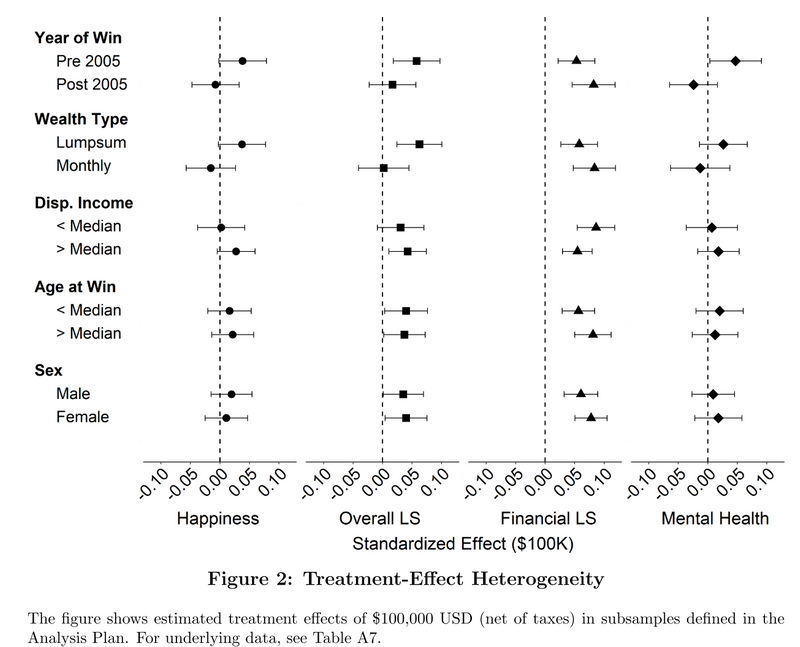Om pengar och välbefinnande: Inte lyckligare, men mer nöjd med livet.
Justin Wolfers skriver i NYTimes:
Many previous analyses [...] have documented that people with higher incomes tend to report higher levels of life satisfaction. The relationship between income and satisfaction is remarkably similar across dozens of countries, suggesting that findings about Sweden likely apply to the United States. Those earlier studies merely documented a correlation. What’s new here is the evidence that higher income is causing higher life satisfaction.
Det nya är ett nytt working paper från Erik Lindqvist, Robert Östling och David Cesarini som identifierar den kausala effekten genom att studera lotterivinnare. Identifikationen av en orsakseffekt är övertygande:
our data allow us classify players into groups within which we know the prize amount won is randomly assigned. Our estimates are based entirely on comparisons of players who are in the same group but were awarded prizes of different magnitudes
Det är inte heller så att effekten klingar av:
We find no evidence that the effect varies by years-since-win, suggesting a limited role for hedonic adaptation over the time horizon we analyze. Our results suggest improved financial circumstances is the key mechanism behind the increase in life satisfaction.
Intressant är dock att dessa resultat gäller Overall Life Satisfaction, mätt med följande fråga:
Overall Life Satisfaction (Overall LS, for short), is derived from the answer to the question “Taking all things together in your life, how satisfied would you say that you are with your life these days?"
När istället lycka analyseras, är effekten fortfarande positiv, men mindre och inte signifikant skild från noll. Lycka mäts med frågan:
"All things considered, how happy would you say that you are?"
Illustration av resultaten:

comments powered by Disqus